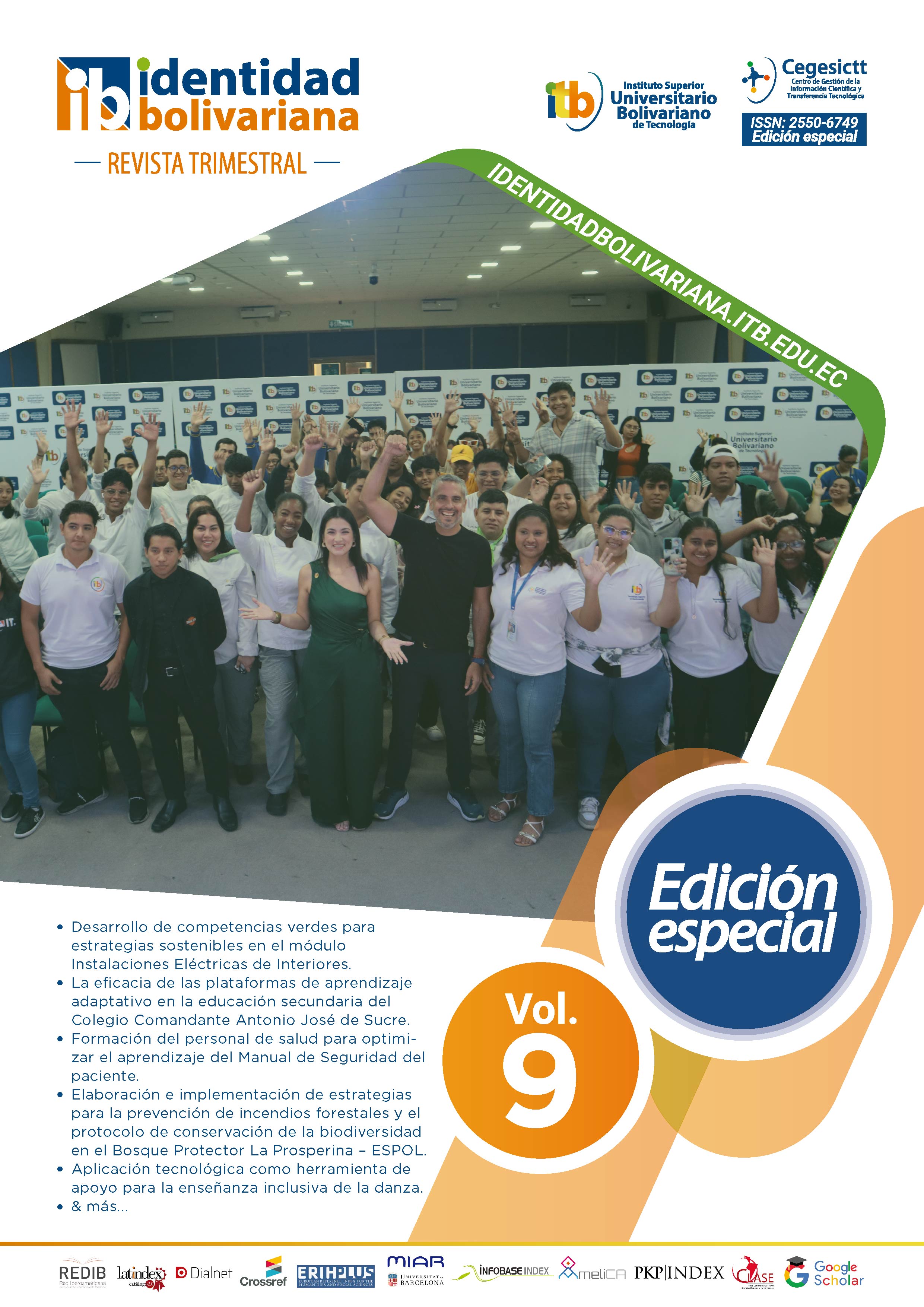Design of a Teaching Guide for Learning Algebra in First Year Technical Baccalaureate Students
Main Article Content
Abstract
This study aims to design a didactic guide to improve algebra learning in first-year technical high school students. Algebra instruction presents significant challenges in technical education, as students often struggle with understanding and applying fundamental concepts,
impacting their academic performance and problem-solving skills in practical contexts.
The research follows a mixed-methods approach, combining qualitative and
quantitative techniques. Surveys and interviews
were conducted with teachers and students to identify the main difficulties in algebra learning, alongside an analysis of students’ academic performance. Based on the findings, a didactic guide was designed, incorporating active teaching strategies, visual resources, contextualized exercises, and practical activities to strengthen algebraic understanding.
The results indicate that implementing the didactic guide fosters algebraic thinking development and improves students’ attitudes toward mathematics. Additionally, the study highlights that using educational materials tailored to the needs of technical high school students enhances
motivation and engagement in the learning process. The study concludes that designing specific didactic
resources is an effective strategy to overcome algebra learning difficulties
and strengthen essential
mathematical competencies in technical education students.
Article Details
Section
How to Cite
References
Bravo, S. (2004). Banco de España. https://repositorio.bde.es/bitstream/123456789/1664/1/be0409-art5.pdf
CEPAL. (2020, julio 20). El turismo será uno de los sectores económicos más afectados en América Latina y el Caribe a causa del COVID-19. Naciones Unidas. https://www.cepal.org/es/noticias/turismo-sera-sectores-economicos-mas-afectados-america-latina-caribe-causa-covid-19
El Banco Mundial. (2022, septiembre 28). El Banco Mundial en Ecuador. https://www.bancomundial.org/es/country/ecuador/overview
Gamarra Chávez, C. (2024). Guía didáctica para la resolución de problemas matemáticos en estudiantes de primero de secundaria. Revista Tribunal, 4(9). http://www.scielo.org.bo/scielo.php?script=sci_arttext&pid=S2959-65132024000300208
Ministerio de Turismo. (2022, octubre 22). Servicios turísticos Ecuador. Visualizador Económico. https://servicios.turismo.gob.ec/visualizador-economico
Ministerio de Turismo del Ecuador. (2018, noviembre 30). El arte, cultura y gastronomía confluyen en Guayarte. Ministerio de Turismo. https://www.turismo.gob.ec/el-arte-cultura-y-gastronomia-confluyen-en-guayarte/
Rivera Mateos, M., & Rodríguez García, L. (2012). Turismo responsable, sostenibilidad y desarrollo local. Universidad de Córdoba.
Rivera, A. (2022, enero 6). Transformación del sector hospitalidad 2022. Conexión Abastur. https://www.conexiones365.com/nota/abastur/turismo/transformacion-sector-hospitalidad-2022
Vallejo, R. (2002). Universidad Nacional de Mar del Plata. https://eco.mdp.edu.ar/cendocu/repositorio/00933.pdf
Villamar Pinargote, J. (2023). Guía metodológica para el desarrollo de la matemática en entornos no presenciales. Revista Cubana de Educación Superior, 42(3). http://scielo.sld.cu/pdf/rces/v42n2/0257-4314rces-42-02-13.pdf

